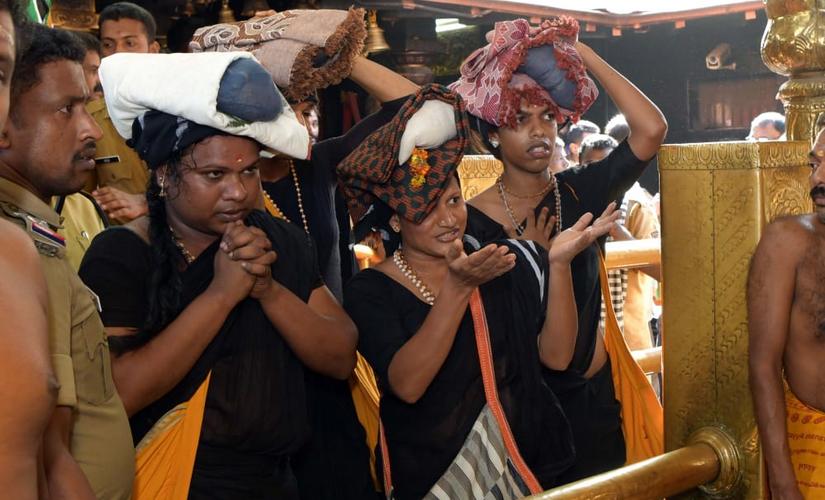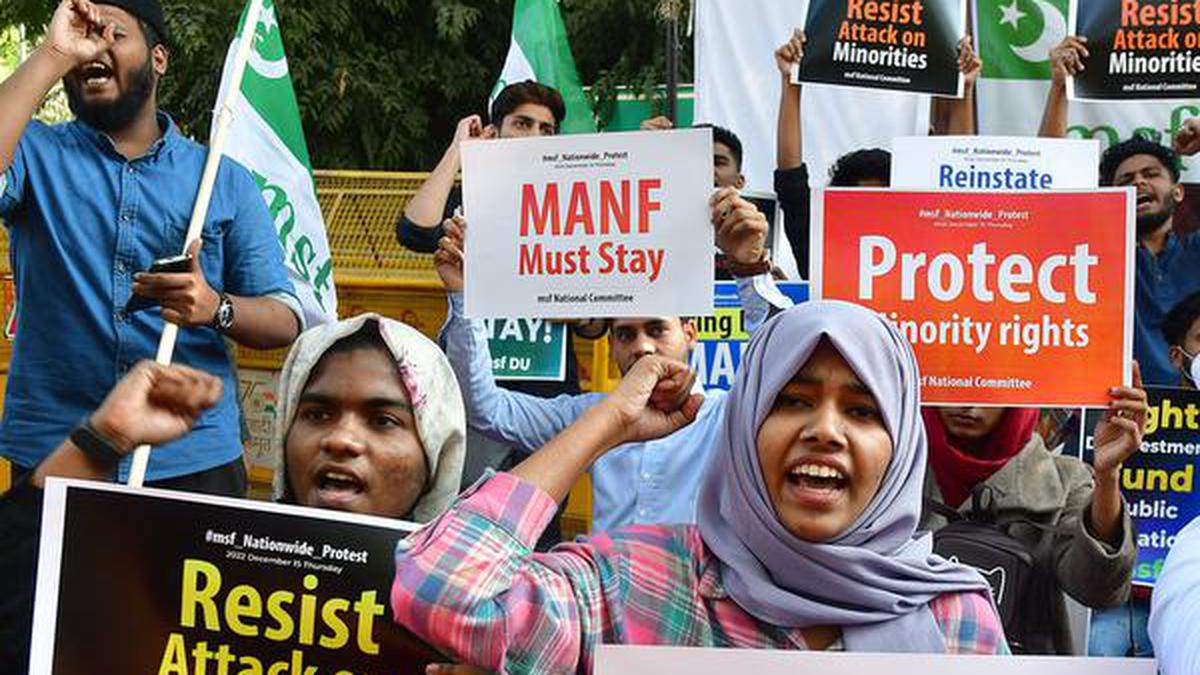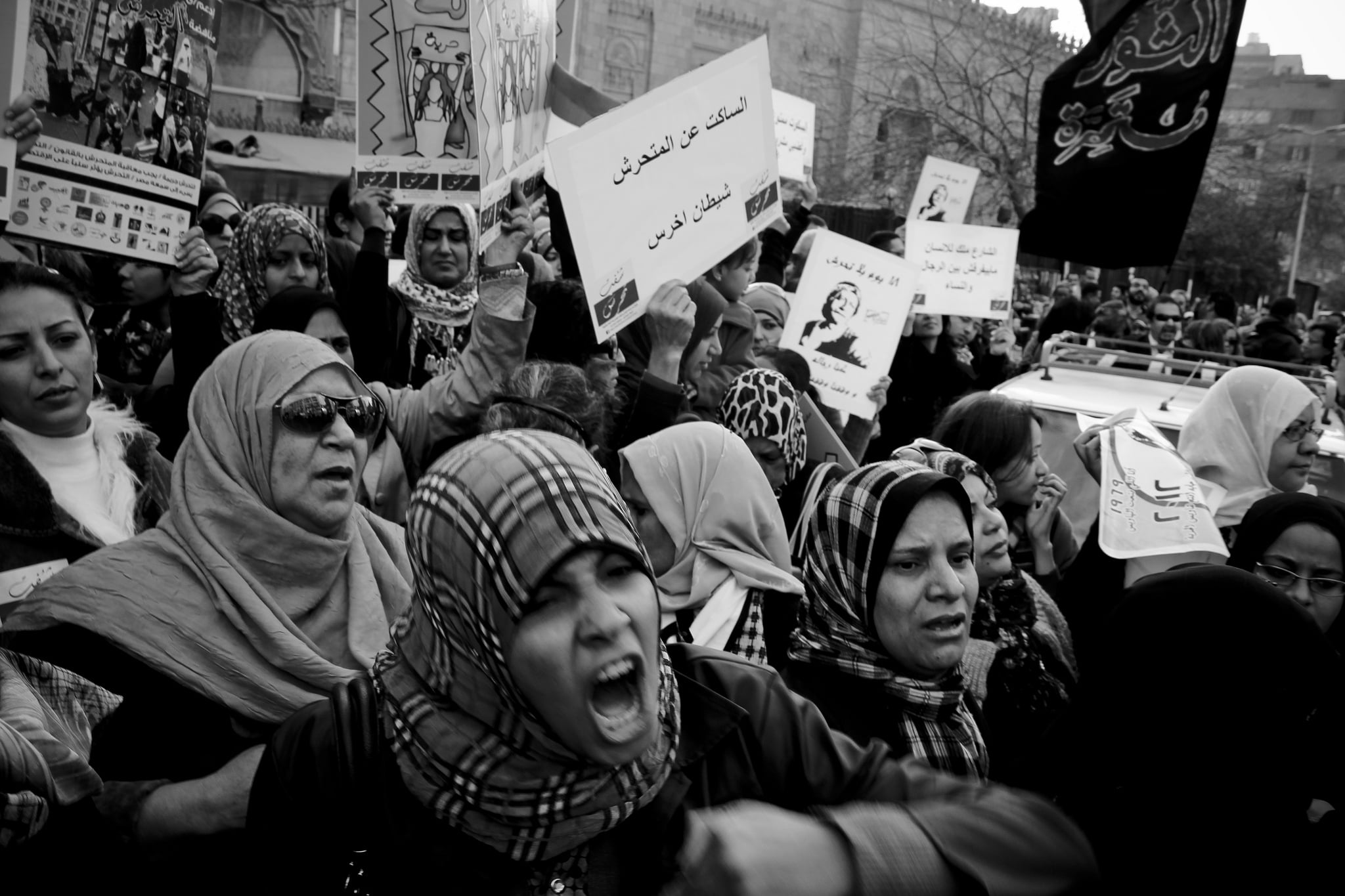In order for women devotees to finally exercise their right to enter the temple, Manidhi, a women’s rights group from Tamil Nadu, organised a visit to Sabarimala. Eleven women who set off to the temple were stopped on their way near Pamba by male devotees and the police intervened. The group found it difficult to complete the journey despite informing the state’s CM and seeking his support prior to the journey. The group was criticised for various reasons and questions were raised on its political affiliation and religious belief.
On social media, one of the BJP leaders thought it necessary to share his keen observation that these women’s foreheads were bare of saffron and sandal, and thus deduced and declared these people were poralis (fighters), not pious devotees, and shouldn’t be allowed inside the temple. Logic and reason are not known to be his strong suits but the post actually resonates with the sentiment of the general public. Since Manidhi is not particularly known for its religious devotion and is usually associated with communism, people started questioning why people who have forsaken God now have this sudden interest and concern about temples.
Vanitha Mathil (Women’s Wall) which was organised on 1st of January also was subjected to scrutiny of the same nature. Around 50 lakh women turned up and formed a 620 km wall to “protect renaissance values” and stand for women’s equality. It was organised by the ruling part of Kerala which happens to be left-wing coalition. The comments of critique that poured in contained some hate speech against the burqa clad, and communist/atheist women participating in an event related to the Hindu belief, custom, and tradition. The people of such opinions fail to realise that this is a matter not of religious devotion but of women’s right to equality.
“Why is entry into temple so important for atheists?” is something that intrigues the believers.
This question has been answered by Periyar through his word and deed, nearly a century ago. Being a non-believer didn’t stop him from participating in Vaikom Satyagraha (1924-25) which was a struggle to secure Eazhavas the right to use and walk on the streets surrounding the Mahadevar temple. Yes, you read that right. The door to the temple opened only in 1936 for the Eazhavas. Periyar understood the importance of temples being places of equality and continued to voice out for the entry of the lower castes to temples in Suchindram and Erode.
Periyar understood the importance of temples being places of equality and continued to voice out for the entry of the lower castes to temples.
For Periyar, the purpose of entering the temples was not attainment of moksha or spiritual enlightenment. Stepping into the temple was taking a step towards the ideal of creating a casteless society. Likewise, women entering Sabarimala is a fight against gender discrimination and inequality. Since religion as an institution legitimises casteism and patriarchy among others, it becomes crucial to overcome injustices propagated by it in order to establish an equal society devoid of any hierarchy.
Also read: Periyar E V Ramasamy: A True Leader Of The Marginalised
The reasons offered that prohibit women’s entry into Sabarimala are problematic. They range from silly reasons like there are lions and tigers in the Sabarimala forest to the fact that it’s an old tradition that has been in practice for a long time. They also include the concern that women are a threat to the vow of celibacy that God has taken and also that since they menstruate, they are impure beings and their presence would defile the sanctity of the place. One can’t tackle patriarchy without addressing these issues. These legitimations are the reason why gender discrimination and inequality are still prevalent in the 21st century.
A Response To These ‘Reasons’
- Children below the age of 10 are allowed inside the temple irrespective of their gender. So the ‘lions and tigers’ excuse really doesn’t hold ground unless these are patriarchy conditioned animals that target and attack only women of age 10-50.
- Antiquity is no longer considered a valid excuse for oppression. Social evils like slavery, child marriage and sati can all be sanctioned under the legitimation of ‘old practices’.
- The myth of the residing deity Ayyapan is that he is a bachelor who has taken a solemn vow to remain celibate. In a heteronormative culture, it is women who pose a threat to male deity’s abstinence, and therefore it was decided to ban women’s entry. My question is this: isn’t God supposed be an immortal being who has transcended earthly corporeal temptations and pleasures and don’t humans pray to god to transcend their own material longings?
- Menstruation is not impure. One can’t emphasise that enough. How can something that is related to creating new life considered impure? Only patriarchy can apparently answer that.
The issue here is not the availability of options but the imposition of one right option by casteism and patriarchy.
In the 20th century, Brahmins and upper caste people also used the same “Dalits are impure” strategy to keep the marginalised in the margins. The narrative hasn’t changed much now. It becomes the responsibility of feminists and humanitarian activists to fight these oppressions head on and not give in.
The fight for gender equality involves not just opposing the dominant institutions and blatant oppression but also unlearning what the patriarchy has taught us over these 2000 odd years. Women have internalised the patriarchal misogyny and this became evident when women themselves protested against the court’s verdict allowing women inside the temple which was supposedly “a win for the women”. The whole discourse that has resulted from this struggle to enter Sabarimala has paved way for us to witness the subtle operations of patriarchy and help us in addressing these in a better and effective way.
For people who say “there are other temples for women to go and pray” – it must be a woman’s choice to pray where she wants and not what the patriarchy dictates. I would also like to point out that there were other wells the ‘untouchables’ could fetch water from, there were other streets the lower castes could use and other women the Dalits could marry. The issue here is not the availability of options but the imposition of the one right option by casteism and patriarchy. The fight for equality entails securing the right of the women and Dalits to choose and not be shamed, attacked, and killed for the exercise of their right.
Also read: The Sabarimala Protests: History Repeats Itself As Progress Is Met With Violence
Some religious extremists allege that atheists want to enter temple not for equality but to break and smash it. All that feminists want to smash is Brahminical patriarchy. Demolishing places of worship is not something they do and therein lies the irony.
The news that we all woke up to yesterday was that two women had finally managed to enter Sabarimala. For the traditionalists, it was time to perform ‘purification rituals’, hold protests and declare hartals. For feminists, it was a moment of pure joy and a time to celebrate because with the steps of Bindu and Kanakadurga, Sabarimala is on its way to finally becoming pure.
Featured Image Source: First Post





Does this mean that women will also be allowed (and exercising their right) to be allowed inside mosques, to pray alongside men?
They should be, don’t you think? No one’s stopping you from campaigning on that issue if you want to.
You do realise that the supreme court verdict banning triple talaq came in a petition filed by muslim women and muslim women’s organisations themselves. Christian women’s property inheritance rights came from a court case filed by a Christian woman. Does that mean that all these reforms should be copy-pasted to Hinduism?
Reforms have been constantly happening in all religions, mostly because of the pressure from sections of people within the same religions. It’s surprising that in case of any reform, people keep crying that their religion is being attacked, instead of looking within to understand and change inhuman practises within their religions.